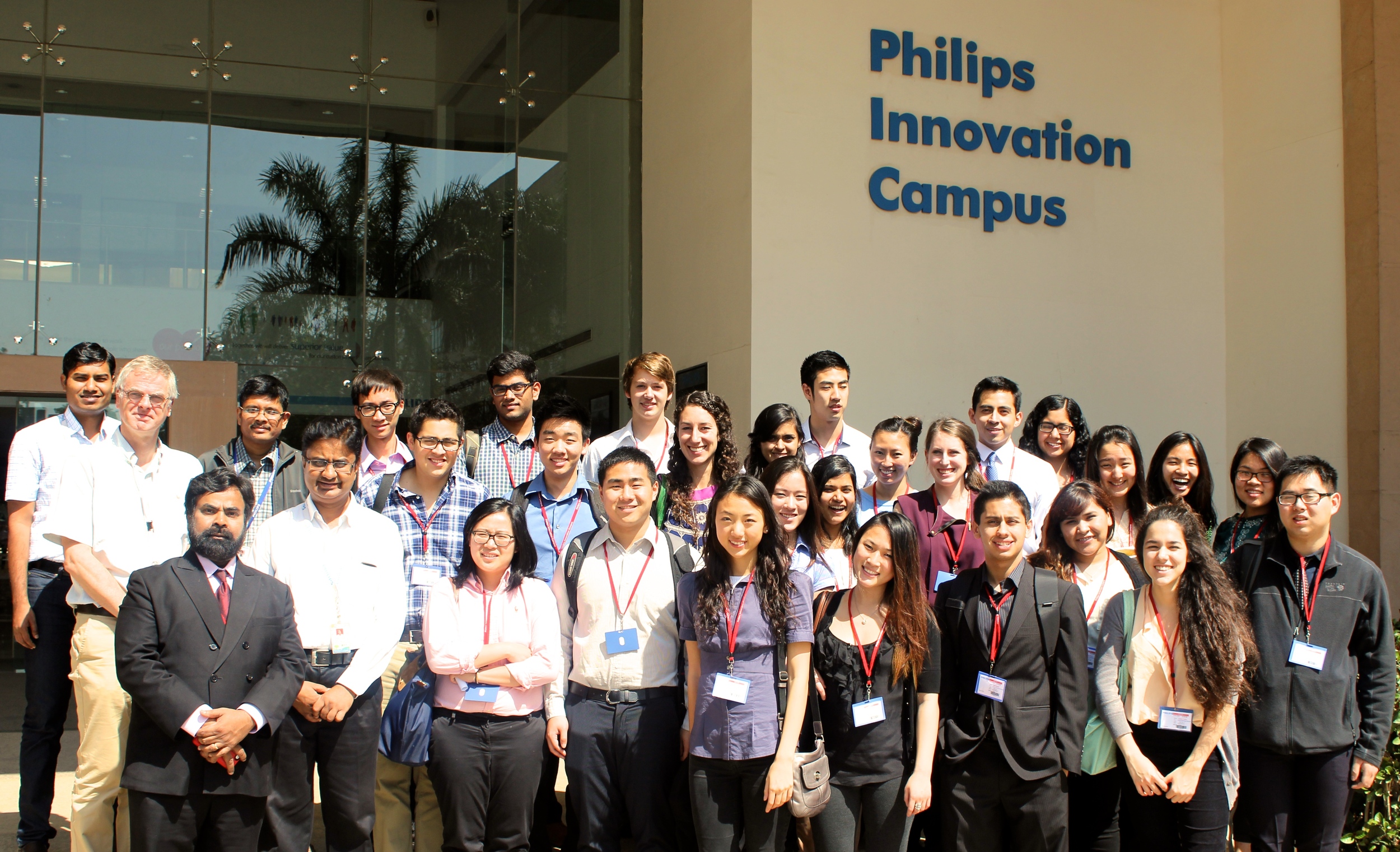Philips Innovation Campus in Bangalore (Photo: Berkeley - Haas)
To be successful in India, foreign companies must adapt their products to the Indian market. McDonalds sells a vegetarian potato burger in India, the McAloo Tikki, and TomTom developed a navigation system based on landmarks instead of street names. "Philips also needs to adapt its medical equipment specifically for India," says Jos van Haaren, who has worked as research director at Philips' innovation campus in Bangalorefor the past three years
"I would have liked to stay longer, but everything comes to an end," says Jos van Haaren resignedly. The researcher from Brabant worked for more than three years on the Philips innovation campus in Bangalore. "It was a fantastic, inspiring experience," recalls van Haaren. "As a Dutchman, you often think you know what people worldwide consider normal, but in India you soon notice that people there look at the world very differently."
He does not only refer to the most remarkable themes such as religion, politics, class differences and poverty, but also to social issues such as healthcare. Van Haaren: "Competition in health care is perfectly normal in India. The costs of treatments are known. In fact, you often have to go to the cash register before you are treated. The fact that healthcare providers make a profit is completely accepted. Almost everyone is convinced that this improves quality and benefits patients. And let's face it, the Netherlands can also learn a lot from Indian healthcare.
The backbone of Indian healthcare is made up of more than 40,000 small private clinics across the country. Van Haaren: "These clinics are often run by a couple: the woman is responsible for gynaecology and obstetrics, the man for surgery and cardiology. If you want to sell them something, you have to adjust your offer to their wishes. The price of equipment is important, but reliability is also crucial, as they often only have one of each. In addition, you have to think carefully about service, because it is relatively expensive to send specialised maintenance engineers to all those clinics across the country."
Jos van Haaren with colleague (Photo: Jos van Haaren)
Philips must therefore redevelop its products for the Indian market and for similar markets in Asia, Latin America and Africa. Van Haaren: "In doing so, we ask ourselves the question with which a product must comply as a minimum. What offers real value and which functionalities can we leave out without reducing the primary functionality? For example, we have developed a highly simplified Ultra Sound System for making ultrasounds during pregnancy and for performing heart scans. Ultrasound specialists want to have all the data, but other treating physicians need only such a simplified and much cheaper system to get a good picture of the situation."
Interestingly, this highly simplified, cheaper equipment is not only in demand in India. Van Haaren: "We have noticed that physiotherapists and midwives in Western Europe are also interested in such instruments. India is an enormously cost competitive country. That makes it a perfect test case for new products. If you succeed in India, you can succeed anywhere."
Also active in the healthcare sector and planning to conquer the Indian market? Feel free to contact us!


